An organic farming method is one in which no synthetic fertilizers or chemicals are used during food production. At its core is preserving the quality of soil, water, and ecosystem. Organic farming is not a new form of farming since it was practiced several years back. It is simply a form of farming whereby biological materials alongside beneficial microbes are used to provide nutrients to crops.
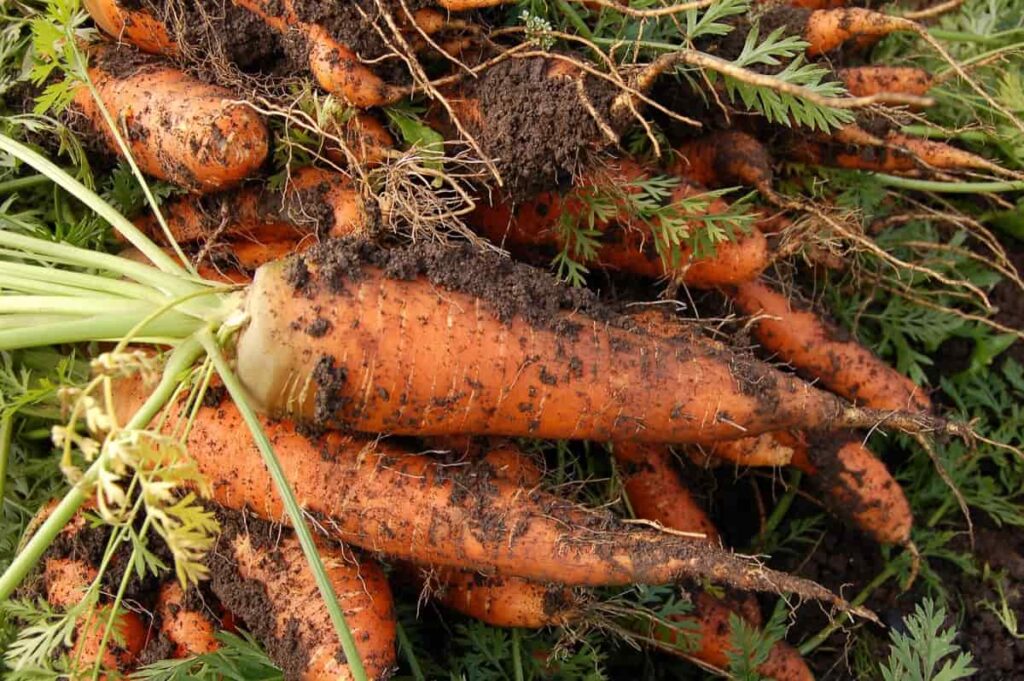
Doing this increases sustainability. It also ensures that the soil remains alive and healthy since organic waste is used. They include Crop wastes, Animal wastes, Farm wastes, and Aquatic wastes. The organic farming method has been on the rise of late among several farmers across the globe.
How to start an organic vegetable farming in Telangana
Organic vegetable farming in Telangana
Catering directly to the consumers’ needs assures better marketability and incomes. It is what nearly 10,000 Telangana and Andhra Pradesh farmers have realized over the past decade and are now steering a silent organic movement. It all began in 2009, when a group of consumers in Hyderabad, then part of unified Andhra Pradesh, established a cooperative society to source chemical-free produce directly from farmers.
Particularly, in the surroundings of Hyderabad, of late, the majority of farmers have taken up organic vegetable farming. Many farmers are converting barren lands into organic fields. With the increasing awareness about organic farming, some farmers ended the practice of cultivation using pesticides. However, agriculture experts suggest farmers follow a scientific procedure for converting pesticide-infested farmland into organic farms.
It takes three years to convert normal farmland into an organic field. The farmers also need to get the organic certificate from the organizations nominated by the Agricultural and Processed Food Products Export Development Authority for exporting and marketing organic foods within the country. Telangana Organic Certification Authority (TOCA) in the State gives organic certification to farmers and trade bodies.
Organic certification for farmers in Telangana
The presence of organic farming certification agencies in the State can make the certification process easier for farmers. Further, TSSOCA (Telangana State Seed and Organic Certification Agency), Hyderabad, has initiated Organic Certification by establishing Telangana State Organic Certification Agency (TSOCA) to render services in inspection and certification of agricultural products and food processing by assessing the conformity of the products with NPOP standards and other International standards.
Certification is essential to regulate and facilitate the sale of organic products to consumers. It is a process by which the certification body guarantees that the operator’s agricultural production or processing system has been carefully assessed and conforms to the specified requirements under National Programme for Organic Production (NPOP) and PGS-India. A soil test is compulsory for certified organic farming. Organic standards are the set of “rules” that a registered organic producer must follow to maintain a certificate that will allow selling produce as organic.
In case you missed it: How to Grow Green Chilli Peppers Faster: Best Tips to Increase Flowering, Fruiting, and Production Yield
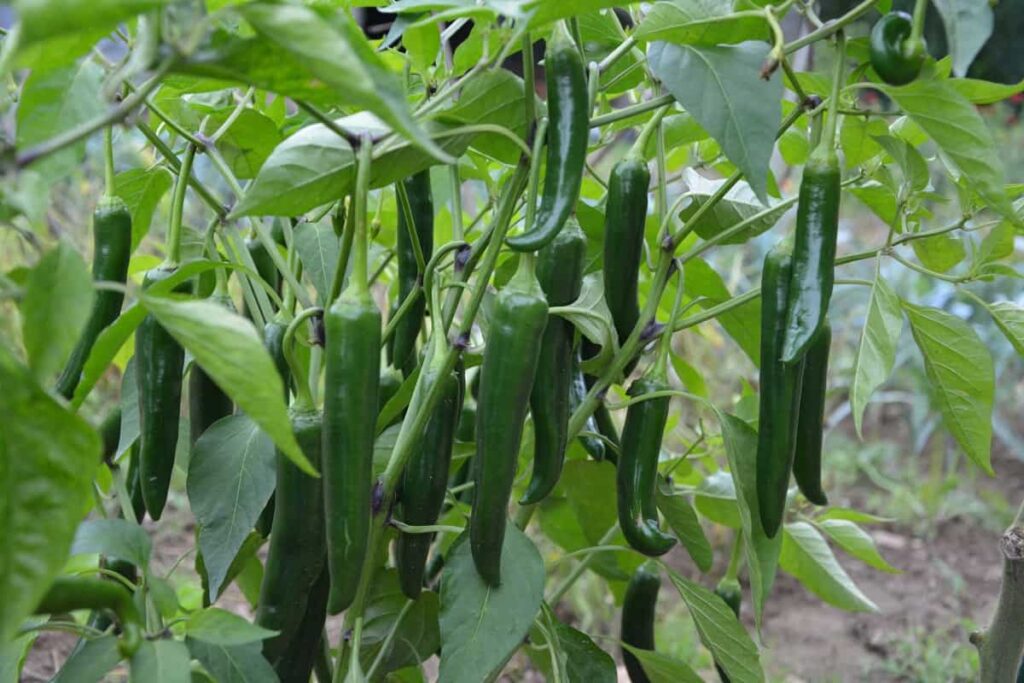
Major organic crops in Telangana
The best form of farming is organic, which does not use fertilizers or pesticides. The fertilizers and manures used in agriculture are gomutra, vegetable peels, and cow dung.
Crops grown organically in Telangana
| Rice | Castor |
| Maize | Cotton |
| Red Gram | Peanut |
| Green Gram | Soybean |
| Millet, Sesame | Black Gram, etc. |
Major vegetable crops that can be grown organically in Telangana
- Different vegetables are sown in Telangana depending on the local climate and soil type, including coriander, tomatoes, brinjal, cabbage, cauliflower, carrots, onions, and potatoes.
- Adilabad, Nizamabad, Ranga Reddy, and Sadashivapet are good tomato-growing areas.
- Shameerpet, Chevella, Ranga Reddy, Zaheerabad, Nizamabad, and Adilabad are among the districts where brinjal is cultivated
- Vikarabad has a lot of green leafy vegetables
- In Rangareddy, cabbage and cauliflower are popular
- In Nalgonda and Rangareddy, carrots grow well
- A variety of onions are available in Rangareddy and Nalgonda
- Telangana’s Zaheerabad, Sangareddy, Tandur, Vikarabad, and Medak districts cultivate potato
Business plan for organic farming
Learn the basics of organic farming
Learning the basics of organic farming before starting an organic farm is essential. Participate in farmer-meet-up symposiums and organic farming training programs. It is very helpful to have the experience of another farmer who has been through a similar phase to make the exploration process run much more smoothly.
Get organic certification
Getting the certification is one of the essential steps in starting an organic farm. India’s organic certificate is accepted internationally by many countries. You can export Agri produce easily to the international market once you have this certificate. APEDA (Agriculture & Processed Food Products Export Development Authority) provides India Organic certification as part of the Ministry of Commerce and Industry.
Start looking for Markets
You will be in big trouble when you grow organic food on your farm and don’t know where to sell it after harvesting. Therefore, before considering organic farming, you should know who will buy your product and in which market you will sell it.
In case you missed it: A Complete Guide to Onion Farming in Kenya: Varieties, Planting, Care, Yield, and Profits
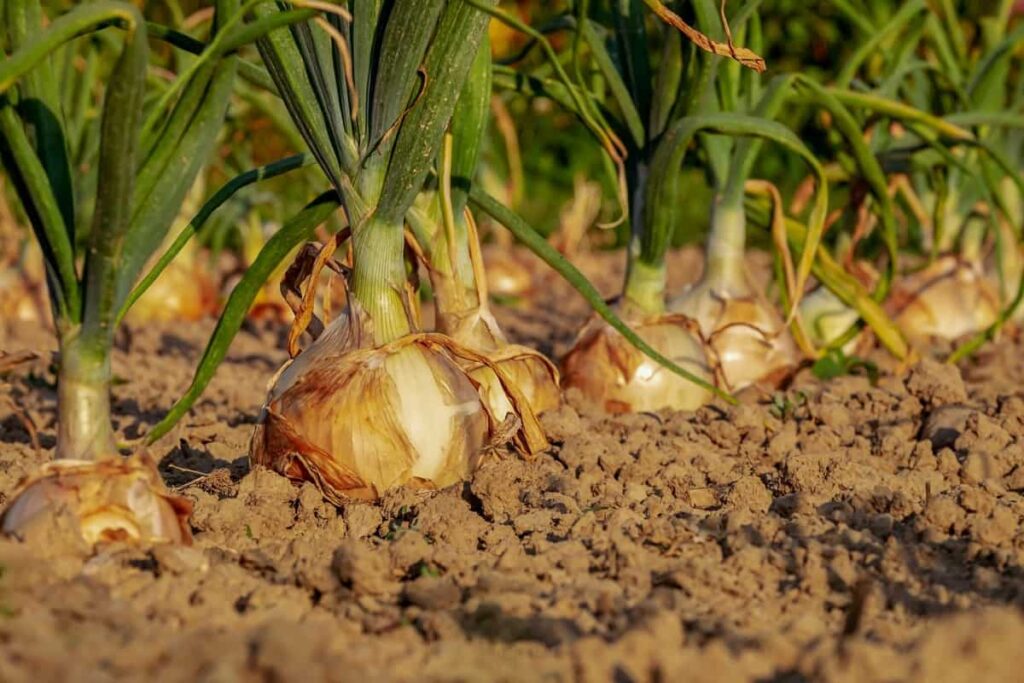
Select a suitable site and crop
Sites selection and location play an important role in any venture’s success. A clean water source should be nearby the organic farm site. Sustainability is also influenced by the farm’s proximity to the marketplace. Take a look around and see what other farmers are growing. You can make a good profit at the end of the season if you keep an eye on market prices and choose the commodity that fetches a reasonable price.
Prepare the soil and make good compost
Good soil is the foundation of all organic farm produce. The soil’s condition directly affects the plants growing there. Using inorganic soil treatments could damage the environment, the plants that grow in the soil, and the consumers who eventually consume the food.
Fertilizer application, pest & disease management
The best way to start organic farming is to learn how to make organic fertilizers and pesticides in your area. Organic inputs do not leave residues on the commodity so that the human body can consume it safely.
Take care of what you plant
Crops take a long time to grow. The organic farming process takes time and requires more attention than conventional farming. Certain techniques must be considered based on the plant type and the farm conditions. Furthermore, all farm plants may not respond to the same organic farming technique.
Key features of organic vegetable farming
- By using organic material and encouraging biological activity, soil quality can be protected and improved
- Using soil microorganisms to provide crop nutrients in an indirect manner
- In soils using legumes, nitrogen can be fixed
- Insect and weed control using crop rotation, biological diversity, natural predators, organic manures, and chemical, thermal, and biological methods
- The rearing and breeding of livestock, including housing, nutrition, health, and nutrition
- Conservation of natural habitats and wildlife and care for the larger environment
Benefits of Organic vegetable Farming
The main advantage of organic vegetable farming is that it does not involve chemical fertilizers, pesticides, GMOs, additives, or preservatives. The joy of consuming the vegetables grown with their hands gives immense satisfaction and satiety. As a result, organic farming relies solely on organic methods for growing food, preventing disease, and fighting pests.
The producer gets fresh vegetables at cheaper rates. The producer gets fresh, pesticides residual free vegetables for consumption. We will explore some of the many benefits of organic farming below, including the benefits to health, environment, and ecology, as well as profitability and sustainability.
In case you missed it: How to Grow Cucumber Plants Faster: Best Tips to Increase Flowering, Fruiting, and Production Yield
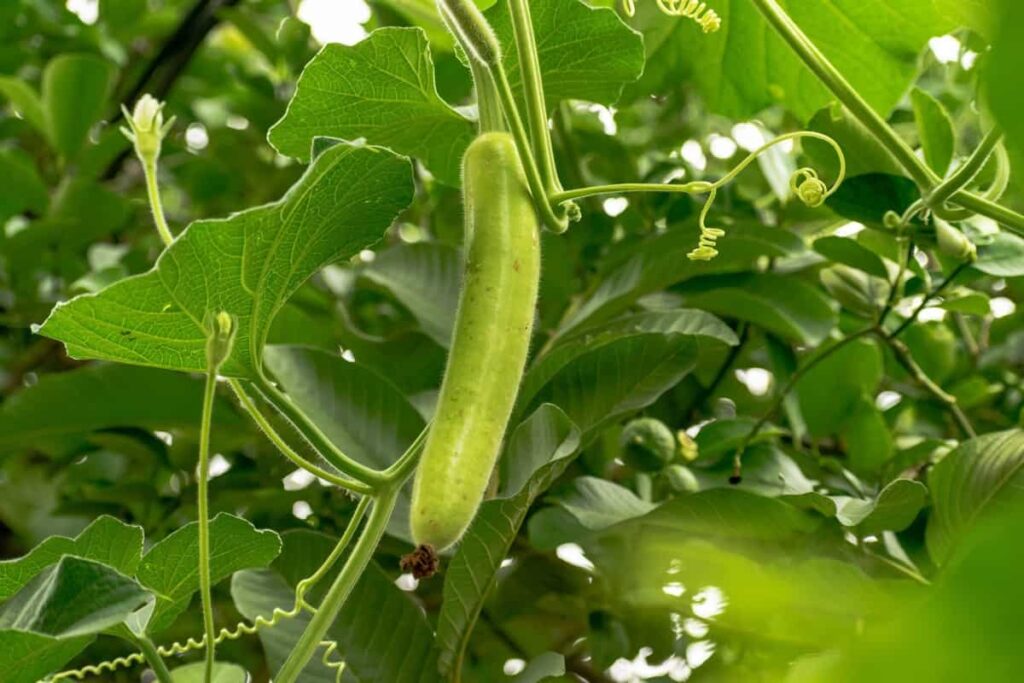
Organic farming doesn’t do any harm to the environment
Ecological concerns are rising, and organic farming presents a viable option for preserving the environment and ecology. Crop rotation is one of the main characteristics of organic farming. By doing this, nitrogen is prevented from escaping into the atmosphere, which preserves air quality. Additionally, it reduces the release of harmful gases such as nitrous oxide, methane, and carbon dioxide that contribute to global warming. By growing greens, ambient temperatures will be maintained in the surroundings.
Organic vegetable Farming Promotes Soil Health
Organic farming is a method of production that does not rely on chemical inputs to increase yield. Harmful chemicals drastically reduce the quality of the soil. It improves the overall health of the soil when organic farming is practiced. Using organic fertilizers improves the soil’s ability to retain water and increases its natural fertility.
Reduce groundwater pollution
The groundwater pollution courses with synthetic fertilizers and pesticides is a significant issue in many agricultural areas. Using organic fertilizers (compost, animal manure, green manure, etc.) is prohibited in organic agriculture, so they are replaced by organic fertilizers (compost, animal manure, green manure) and increase biodiversity. Well-managed organic systems significantly reduce the risk of groundwater pollution with better nutrient retention abilities.
Supporting Animal Health and Welfare
Farming organically preserves more natural habitats and encourages birds and other natural predators to live on farmland, which helps control pests naturally. In addition, animals living on organic farms graze on clean, chemical-free pastures, which keeps them naturally healthy and prevents illness. The fact that organic animals are happy and healthy is a perk for organic farmers.
Scope and opportunities in Telangana
- The State has vast potential to adopt and promote organic farming because of Diverse agro-climatic conditions with various agricultural production systems, different types of soils, livestock, forest coverage, natural vegetation, and hard-working and innovative farmers.
- Nil to low fertilizer consumption areas, default organic areas (certain pockets of Khammam, Warangal, Adilabad, and Mahabubnagar), rainfed areas, tribal areas, and inaccessible areas have to be identified and promoted for organic vegetable farming.
- No. of organic stores, markets, shops, and ways of marketing, including online, has increased enormously in the State. It shows that organic farming has huge potential.
- More than 290 lakh tonnes of crop residue (Agricultural field crops) is generated annually in Telangana. Approximately 30-40% of rice and 90-95% of cotton residues are being burnt in the State. Hence, farmers need to be educated to incorporate crop residues in situ with the help of multi-crop shredders, rotary mulchers, rotavators, and slashers. It helps avoid burning, improving organic matter, thus, soil fertility. Further, they can also be subjected to decomposition
- Using waste decomposer or spraying consortium of microorganisms at 1% of the volume of crop residue, or it can be used to produce compost, vermicompost, and Biochar.
- The creation of community cattle and goat/sheep hostels in the villages help to take better care of their feeding, collection of wastes of these ruminants, and composting. Then using the setting up of vermicompost units at the farmer or village level will help to produce the required quantity of vermicompost duly utilizing locally produced crop residues and dung.
In case you missed it: Ayam Cemani Chicken Breed Guide: Characteristics, Cost, Egg Laying, Care,
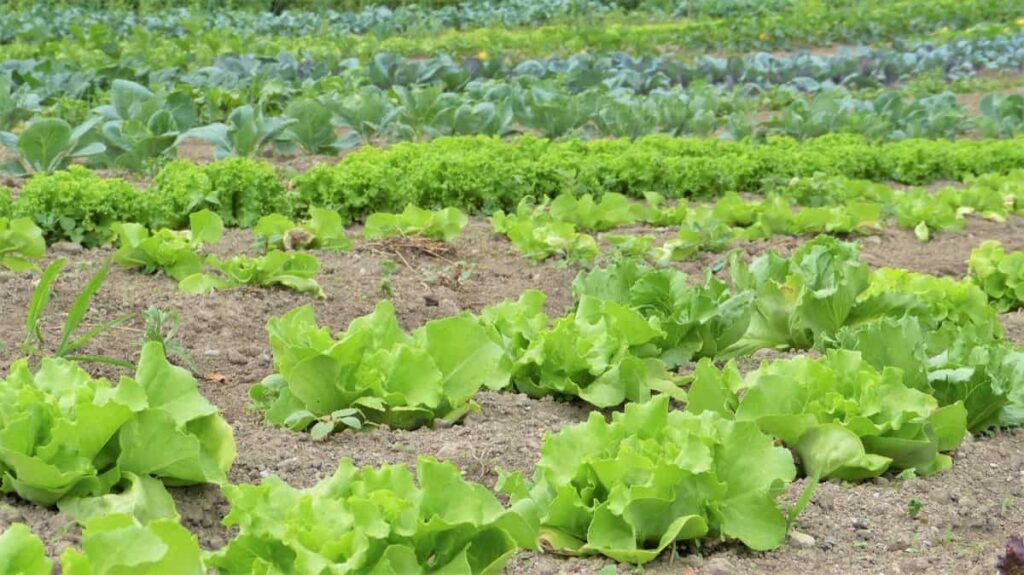
Promoting organic farming in the State
- The government of Telangana has taken the step to promote green manuring in the State. However, seed production of green manures has to be promoted in the vacant lands of research farms, seed farms, and farmers’ fields from September onwards every year to produce sufficient seed to meet the ever-growing demand.
- Several programs encourage organic farming, including the National Project on Organic Farming, the National Horticulture Mission, the National Project on Management of Soil Fertility and Health, and the Mission for the Development of Organic Value Chains in the North Eastern Region.
- An organic farming policy has been formulated in Telangana state to promote organic farming. It is aimed at strengthening the production, supply chain, and marketing systems through the development of proper infrastructure, regulation, and providing incentives.
- Hence, farmers should be encouraged to take this opportunity to convert their farms to organic. Further, they should continue organic cultivation even after stopping the government’s financial assistance.
- An ‘Organic mela is also being conducted during January every year in Public gardens in Hyderabad. It is attracting the public’s attention and improving awareness towards safe and healthy organic food.
- In Telangana, the practical experience of Punukula, a small hamlet in Palvancha Mandal, Bhadradri dist. And Enebavi villages (the first organic village in India) in Lingala Ghanpur Mandal, Jangoan district, can be taken as models for replicating organic farming in suitable areas in Telangana.
- Few NGOs (non-governmental organizations) and FPOs (Famer Producer Organizations) are already promoting organic farming in the State. Their experiences and cooperation can also be considered while encouraging farmers to adopt organic farming.
Government support/subsidy for organic farming in Telangana
- Promote organic farming by providing training to farmers and making agricultural inputs available to them.
- Meanwhile, the construction of warehouses so that farmers don’t resort to distress selling and get remunerative prices for their produce.
- The government has launched community-managed sustainable agriculture (CMSA) to support poor farmers and non-pesticide management practices to reduce expenses and increase income.
- And also, cultivation of vegetables, leafy vegetables, and flowers in a radius of 50-70 km around Hyderabad would be a priority, as these areas have easy access to markets.
- Considering the increasing population and cost of vegetables, the Telangana Department of Horticulture introduced an annual scheme in 2012-13 to provide quality and pesticide residue-free hybrid seeds, vegetable mini kits, etc., to city residents.
In case you missed it: Roma Tomato Growing Guide: For Pots, Ground, Raised Beds, and Buckets
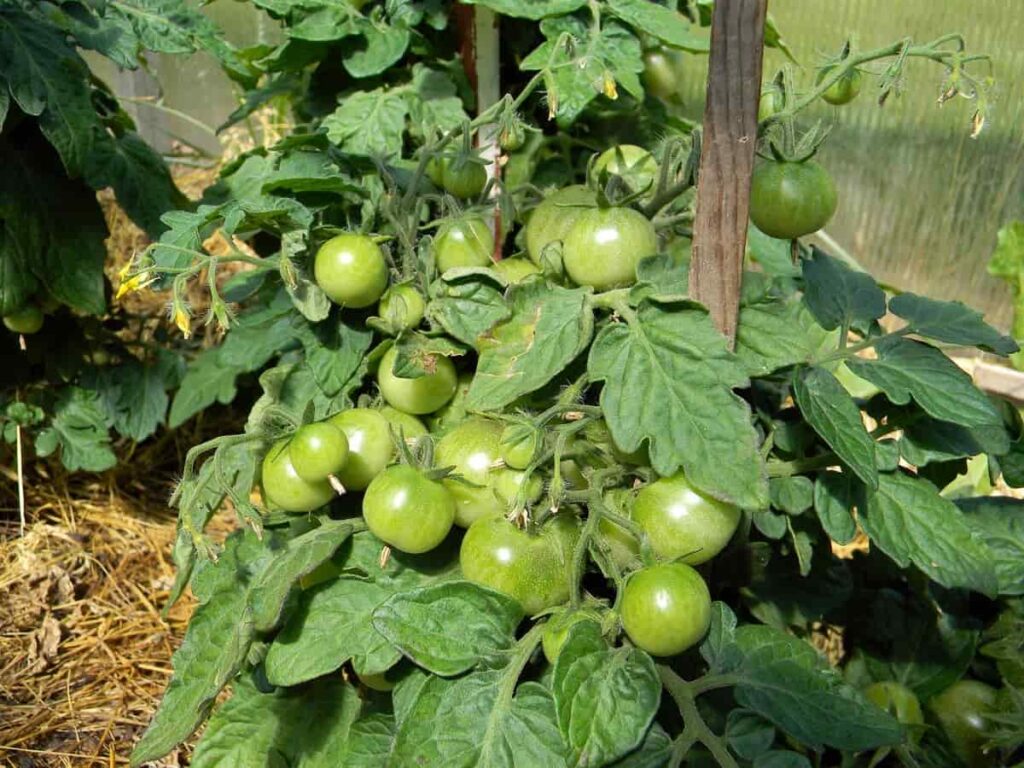
Agricultural-related schemes in Telangana
- The Telangana Government has proposed a new scheme for providing investment support to agriculture and horticulture crops through grants of Rs. 5,000 per acre per farmer each season (Kharif & Rabi). For the purchase of inputs such as seeds, fertilizers, pesticides, labor, and other investments for the crop season of the farmer’s choice.
- Rythu Bandhu – Farmers Group Life Insurance Scheme: (Rythu Bhima) The Telangana State Government launched the prestigious scheme “Rythu Bandhu Group Life Insurance Scheme for Farmers” to benefit the farming community. If a farmer dies for any reason, the Scheme provides immediate and adequate financial relief to bereaved family members or dependents.
- Most farmers are small or marginal farmers, and farming is their primary source of income. The dependent family members will face financial difficulties in the event of the farmer’s demise. It is payable to the Nominee designated by the insured farmer for Rs 5,00,000.
- And also, the Telangana government introduced the distribution of seeds under subsidy. The major objective of the Subsidy Seed Distribution scheme is to distribute various Crop Seeds like Paddy, Jowar, Maize, Program, Greengram, Blackgram, Bengal gram, Groundnut, Castor, and Green manure on subsidy to Farmers. Subsidy patterns may vary from crop seed to crop seed.
- Operating under the guidance of the Centre for Sustainable Agriculture (CSA), a Hyderabad-based research non-profit, the cooperative society roped in a few farmers over a period of time. It began to sell the product through a farmer-run retail store in Secunderabad and mobile retail vans that traveled to urban areas.
- Soon, more and more organic farmers joined the cooperative society, and what started as a consumer initiative became a farmers’ group. In 2013, when the government floated the concept of farmer producer organization (FPO) to aggregate the collection of products and create market links for better prices under the Companies Act of 2013, CSA and the cooperative society saw this as an opportunity.
Conclusion
Organic vegetable farming can mitigate the adverse effects of climate change, preserve biodiversity enhances soil health and crop productivity. The initial yield reduction in organic farms must be offset by offering premium prices by the government. Organic practices like green manuring, biofertilizers, compost application, mechanical weed control, and non-chemical pest control need to be adopted liberally. The certification process must be made easier and more accessible.
- Crops Grown in Summer Season: Best Choices for Summer Gardening
- Organic Pest Control for Tomato Farming
- How to Maximize Sheep Farming Profit
- Broccoli Varieties: Choosing the Right Cultivars for Your Farm
- How to Raise Pigs in Your Own Backyard: A Comprehensive Guide
- Budget Friendly Sheep Shed Ideas: Cheap and Low-Cost Tips
- How Much Do Cattle Farmers Make: Revenue Streams in Cattle Farming
- Management Pests and Diseases in Your Cotton Field
- Sheep Farming Business Plan for Beginners
- Aquaponic Farming at Home: A Step-By-Step Guide
- Profitable Village Farming Business Ideas in 2024
- High-Yield Aquaculture: Fast-Growing Fish for Farming
- Effective Fish Pond Construction Techniques for Beginners
- Irrigation and Water Management in Pineapple Farming
- Blossom to Harvest: Mastering Flowering and Pollination in Papaya Farming
- Pig Fattening Essentials: From Selection to Sale for Beginners
- Raising Wagyu Cattle: A Complete Guide for Premium Beef Production
- Soil Types and Their Water Holding Capacity
- Optimizing Irrigation Schedules for Coconut Groves for Enhanced Yield
- Espresso Your Garden: Coffee Grounds for Healthier Acid-Loving Plants
- The Best Soil Mix for Snake Plants: How to Mix Your Own Snake Plant Soil
- Green Thumb Success: Expert Tips for Cultivating Greenhouse Beans All Year Round
- Bloom All Year Round: The Ultimate Guide to Indoor Hyacinth Care
- Eco-Friendly Gardening: How to Make Liquid Fertilizer from Kitchen Waste
- Ultimate Guide to Grow Anise in Pots: Explore Seed Propagation to Harvesting
- Guide to Raising Chester White Pigs: Discover Breed Facts to Growth Management
- Mastering the Elegance: The Ultimate Guide to Weeping Cherry Tree Care, Planting, and Maintenance
- Ultimate Guide to Planting Garlic in Grow Bags: Growing Strategies for Beginners
- How to Fix Spider Plant Leaf-Related Problems: Natural and Organic Remedies
- 10 Reasons Why Your Tulsi Plant is Shedding Leaves: Home Remedies and Solutions
- Optimizing Growth and Yield: The Advantages of Palm Bunch Ash Fertilizer
- Utilizing Neem Oil Extract as a Natural Pesticide for Hydrangea
- From Soil to Harvest: Various Ways in Which Farmers Can Use AI Tools
- Steps to Encourage and Induce Citrus Flowers: A Comprehensive Guide
- How to Fix Snake Plant Leaf-Related Issues: Natural and Organic Remedies
- Transform Your Garden into a Fragrant Oasis with Raat Ki Rani (Night Blooming Jasmine)
